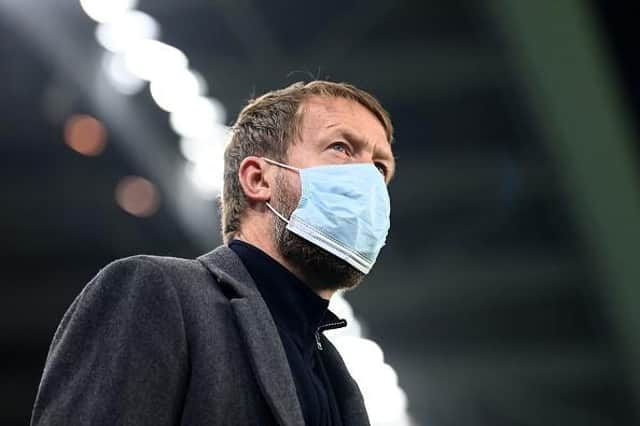Premier League statement on Covid-19 postponement process and how it affects Brighton, Leicester and Everton


Brighton have had two Premier League matches postponed this campaign with both Tottenham and Man United called-off due to outbreaks in the opposing camps.
Brighton also had their own troubles and their request to postpone a recent home match against Wolves - a fixture they lost 1-0 - was refused.
Advertisement
Hide AdAdvertisement
Hide AdIt's a tough call to postpone any Premier League fixture and late decisions can seriously impact the fans and have financial implications for both clubs and TV companies.
Brighton are due to play Leicester on January 23 and the club will closely be monitoring developments at the King Power as their game at Everton this weekend has already been called-off due to an outbreak within the Leicester camp.
The call-off came shortly after Leicester fielded a strong looking team to thrash Watford 4-1 in the FA Cup.
So just how are the decisions made and why are some games called-off and some not?
Premier League statement
Advertisement
Hide AdAdvertisement
Hide Ad"The Premier League Board always aims to make their evaluations quickly, giving as much warning to fans as possible, but there will be circumstances where games are postponed at short notice if there are issues on a matchday.
"It is the responsibility of the Board to decide whether matches should be postponed for COVID-19 reasons.
"Clubs may apply to the Premier League if they believe that a match should be postponed in accordance with the Premier League’s rules and postponement guidance.
"Each application is considered on its merits and any decision to postpone a fixture will be confirmed publicly by the Premier League immediately after the Board has reached its decision."
Match postponement application process
Advertisement
Hide AdAdvertisement
Hide AdClubs are asked to contact the League as soon as they suspect that an application might need to be submitted.
Clubs must provide:
- Players and staff who have returned a positive COVID-19 test, their vaccination status and, if known, the source of their infections.
- Players and staff who are self-isolating.
- Players who are unavailable to play through injury or illness.
- Players listed on the club’s squad list who are still available to play in the match, including appropriately experienced Under-21 players (which includes Under-21 players who have played for the club, another Premier League or EFL club, or an overseas club in the current season. However, any Under-21 player who participates in a club’s FA Cup Round Three match and has not played in any other first-team competitions for the club this season will not be considered by the Board as appropriately experienced).
Advertisement
Hide AdAdvertisement
Hide Ad- Supporting medical information to verify the status of each unavailable player, which will be reviewed by the League’s medical advisers.
What the board consider?
1) The impact of COVID-19 infections on a club’s squad, as well as injuries, illness and those isolating, and the number of players available on the squad list and any Under-21 players with appropriate experience. Where a club cannot field 13 outfield players and a goalkeeper either from its squad list or its appropriately experienced Under-21 players, the match will be postponed.
2) The status of any COVID-19 outbreak within a club, including the number of individuals affected, the sequence and source of infections and their proximity to the match in question.
3) A club’s ability to safely prepare its players in the lead-up to a match.
Advertisement
Hide AdAdvertisement
Hide Ad4) Medical advice as to whether there is any unacceptable risk to the health and safety of players and staff by playing the match.
5) Any advice from UK Health Security Agency and other public bodies.
6) Any other exceptional circumstances.
The Board has applied these factors in recent postponements, with examples including:
- Where a club has been unable to field 13 outfield players and a goalkeeper for a match due to COVID-19 infections, injuries, illness and/or those isolating.
Advertisement
Hide AdAdvertisement
Hide Ad- Where the status of a COVID-19 outbreak within a club’s squad remains unclear very close to a match. For example, where there remains a concern that not all COVID-19 infections have been identified and there is insufficient time to resolve that concern before kick-off.
- Where the club does not have sufficient time to safely prepare its players in the lead up to a match. For example, where the UK Health Security Agency has requested the closure of a training ground and suspension of group training following an outbreak during the preparation period ahead of a match.